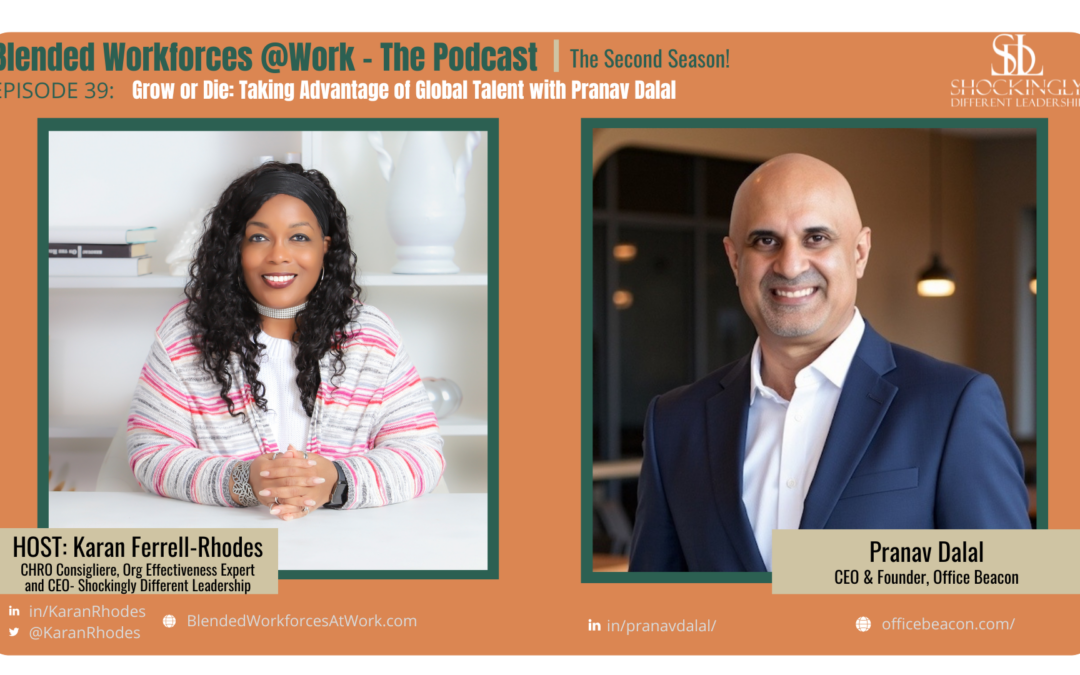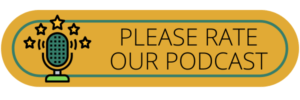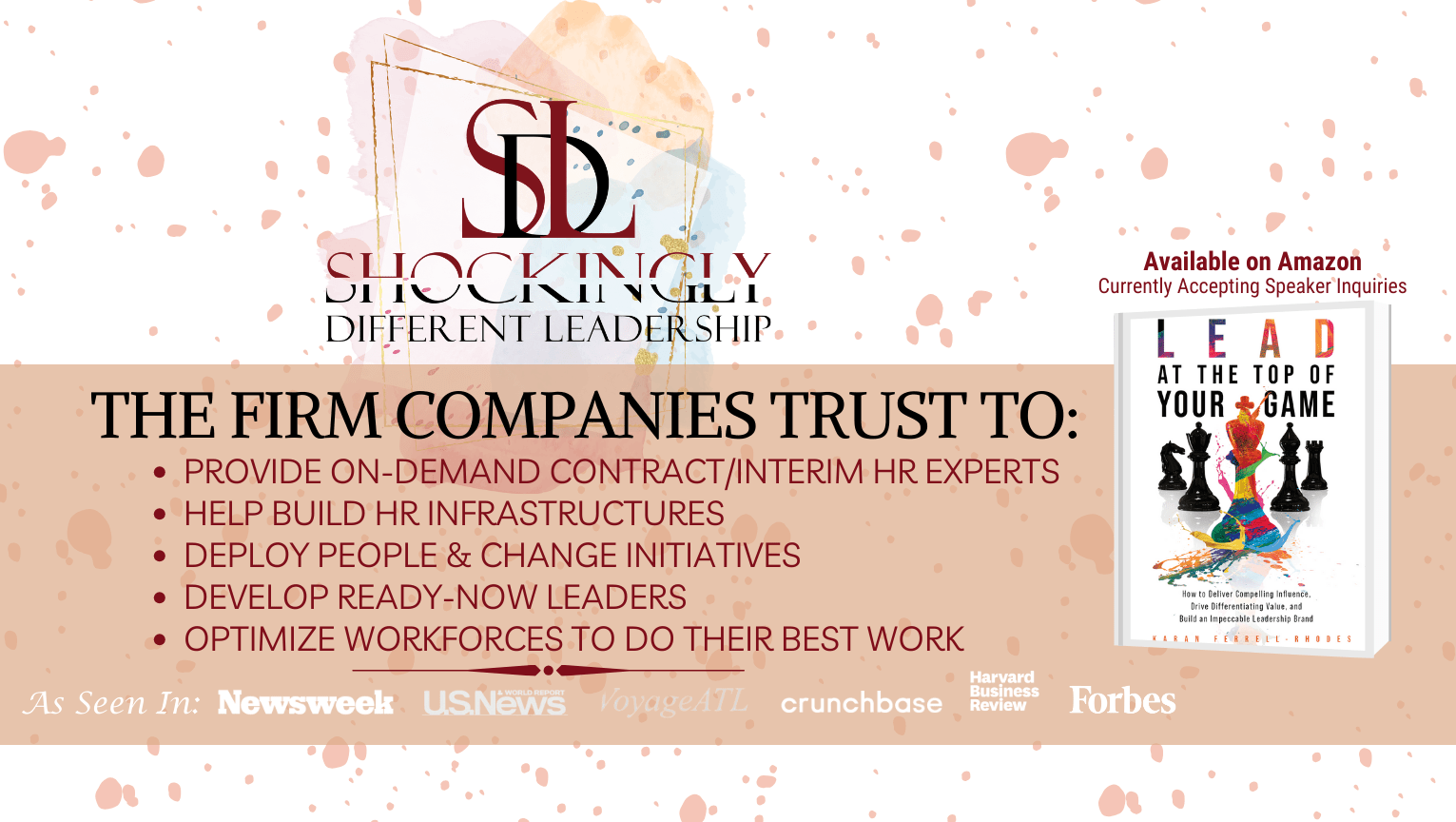IN THIS EPISODE, KARAN FERRELL-RHODES INTERVIEWS PRANAV DALAL.
Pranav explores topics such as leveraging global talent, offshoring benefits, post-COVID workforce strategies, and the importance of corporate culture. Pranav offers insights on scaling businesses and managing global challenges within Office Beacon. His vision emphasizes cost-effective staffing, operational efficiency, and building a resilient, growth-oriented organization.
Pranav Dalal is the CEO and Founder of Office Beacon. He shares his inspiring entrepreneurial journey, recounting how he started his career in Toronto and launched Office Beacon in 2001. The company has grown into a global staffing agency with operations in India, the Philippines, Mexico, and South Africa.
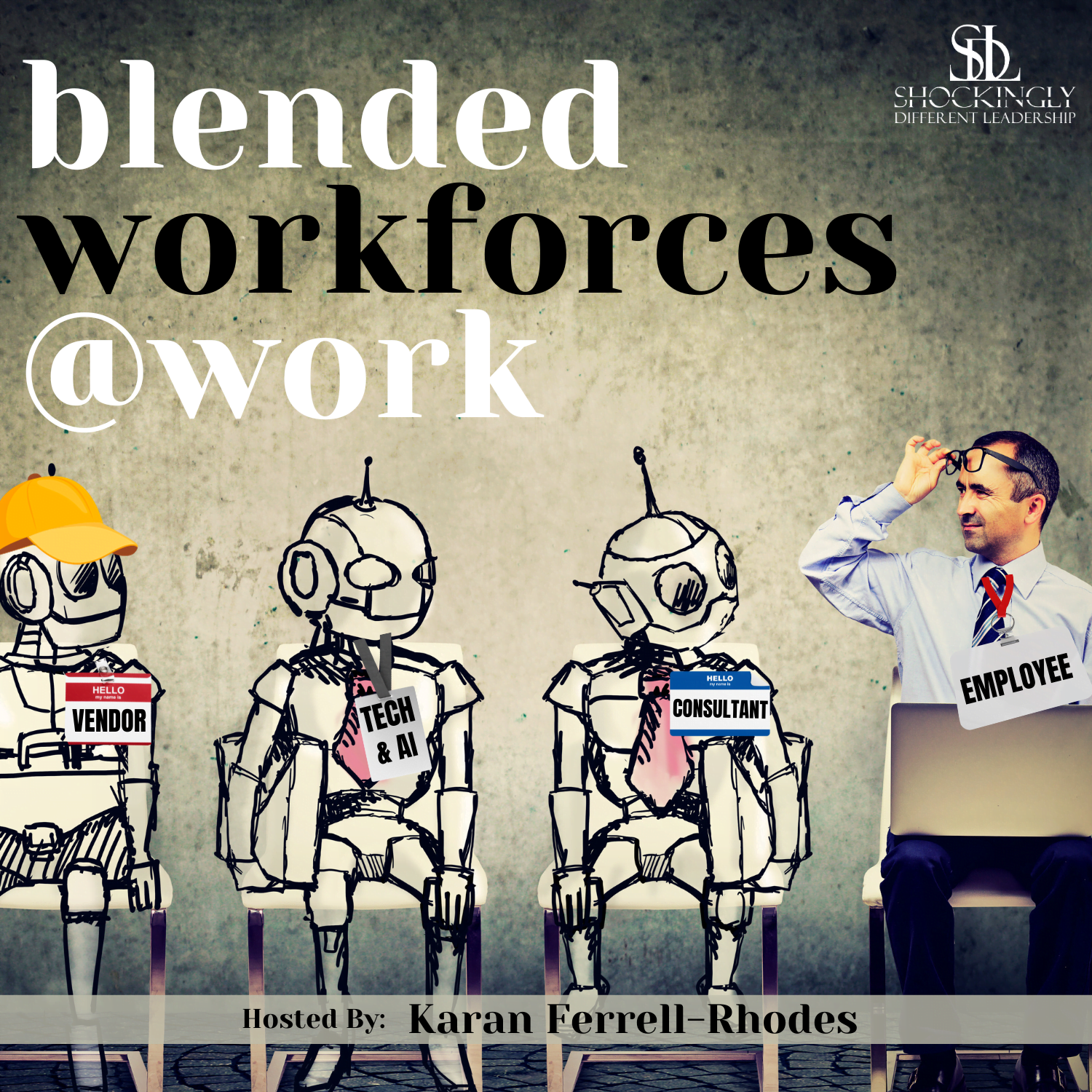
Posted by
SDL Media Team
Rather view our video podcast?

WHAT TO LISTEN FOR:
- What are the main benefits of using global staffing services?
- How can companies ensure a smooth onboarding process for remote teams?
- What challenges do businesses face in global staffing?
- Why is a strong corporate culture important in remote staffing agencies?
- What should companies consider before partnering with a global staffing firm?
- How can businesses maintain continuity when operating across multiple countries?
“Companies should do their due diligence on any [prospective] partner companies.”
FEATURED TIMESTAMPS:
[02:25] Pranav’s Personal Background
[03:50] Pranav’s Career Journey and Founding Office Beacon
[09:26] Evolution of Office Beacon and Industry Expansion
[14:15] Onboarding and Corporate Culture
[20:58] Challenges and Obstacles in Global Staffing
[22:17] Signature Segment: Pranav’s entry into the LATTOYG Playbook: Preparing for Global Talent and Scaling Businesses
[25:24] Signature Segment: Pranav’s LATTOYG Tactic of Choice: Leading with Intrapreneurship
[26:45] Contact Information

ABOUT PRANAV DALAL:
Pranav Dalal is the CEO and Founder of Office Beacon, a virtual and remote global staffing agency. His entrepreneurial journey began in mid-2001 when he traveled from Los Angeles to India, rented an office, hired five employees, and started Office Beacon—all within one week. Now, with over 5,500 full-time employees globally, Office Beacon operates in India, the Philippines, South Africa, and Mexico.
LINKS FOR PRANAV:
- Website: officebeacon.com/
- Personal LinkedIn: linkedin.com/in/pranavdalal/
- Company LinkedIn: linkedin.com/company/officebeacon/
ADDITIONAL RESOURCES FOR YOU:


Episode Sponsor
SDL is the go-to firm companies trust when needing to:
- supplement their in-house HR teams with contract or interim HR experts
- implement leadership development programs that demonstrate an immediate ROI and impact on the business

Episode 39 | Grow or Die: Taking Advantage of Global Talent with Pranav Dalal
Pranav Dalal 00:00
Companies are looking, realizing in big numbers that you can access talent anywhere in the world. And so that has been great for us, because we were at the forefront of that early on, and because we are in multiple countries, we can access skillsets, different skillsets that each country would offer to our clients.
Karan Rhodes 00:03
Blended workforces are one of the hottest talent strategies today, where employers are using a mix of traditional employees with external resources like independent contractors, coaches, consultants, vendors, and technology solutions, all in order to enhance competitiveness, ensure cost flexibility, and expedite business goals. But how are the successful companies infusing blended workforces into their business strategy? And what are the critical success factors and pitfalls to avoid during implementation? And on the flip side, what does it really take for suppliers to improve their chances of finding and landing contract opportunities? The devil is in the details, my friends! I’m your host, Karan Ferrell Rhodes, and it’s time to get smarter about Blended Workforces at Work!Hello there, my superstars. This is Karan, and welcome to another episode of the blended workforces at work podcast. We have an absolutely amazing guest for our show today, we are absolutely thrilled to have and don’t get his name correctly, say it correctly. It’s Pranav Dalal. I hope that was great, Mr. Pranav Dalal, who is the CEO and founder of Office Beacon. And Office Beacon is a virtual and remote global staffing agency, and Pranav has seen you know firsthand how. You know blending domestic teams with global talent can really drive Business Growth and Innovation, and obviously, you know, I cannot wait to talk to him more about it, especially in today’s economic time. So welcome to the show, Pranav, thank you. Karan, appreciate it. Oh, we’re so happy to have you. Well, as I mentioned, I cannot wait to talk about the great work that office beacon is doing, and how you all are supporting companies around the globe with Safi needs. But before we go there, we always love to learn just a little bit more about our guests. So for just as much as you feel comfortable, would you mind giving us a sneak peek into your life outside of work?
Pranav Dalal 02:06
Sure. Well, I’m a solo or single father of three. My kids are a little bit older, and my I’m a girl dad, so I have two girls that live with me, and we just got a puppy, it’s a chow chow. And so life is full of a lot of happiness with my kids and so.
Karan Rhodes 02:24
I can imagine, and it’s the chow, chow new?
02:28
Yes, probably about a month old.
Karan Rhodes 02:33
Congratulations on your new fur baby.
Pranav Dalal 02:36
Yes,
Karan Rhodes 02:37
And the name, if you don’t mind me asking,
Pranav Dalal 02:39
I know, and she’s got more social media clicks than anybody.
Karan Rhodes 02:46
Well, you know, I’m a fellow dog parent, and they our two dogs are Poppy and Bones are official members of the show. Many of my long time listeners have heard them join us in the background every now and then, yeah, but they’re truly family members, and I’m sure your new puppy is gonna become very quickly institution of the family.
Pranav Dalal 03:10
You are correct.
Karan Rhodes 03:11
Oh, awesome. Well, thank you so much for sharing Pranav. So let’s go ahead and kind of start a deeper conversation. I would love for you to share, if you don’t mind, just at a high level, the major milestones of your career and what led you to becoming the CEO of Office beacon.
Pranav Dalal 03:31
Well, thank you. Karan, yeah, my career spans decades, and started in Toronto, Canada, helping startups, pretty big companies like Fidelity Investments, who were starting in Canada. So I was part of that team, part of a major cell phone company startup in Canada as well, but moved to the US in the late 1990s to join the Internet revolution here, and really had the good fortune of joining internet startups that did very, very well. But from that, I learned a lot about using talent from other countries, specifically at that time India. And so when there was an internet bubble crash in about 2000 and at that time, a lot of the internet companies really went out of business. And so I really thought at that time, it was a good time for me to start my own business, which is Office beacon. So mid 2001 I took the plunge and the leap of really, kind of going India, setting up an office, hiring five people, literally five people, and coming back here and cold calling, just cold calling, cold calling, cold calling, and I found myself good at it, and got a lot of great clients, initially, like, out here in California, in LA, like, Smart and Final, which is a large grocery chain, yeah, got the state of California. And so we were off to the races from that point.
Karan Rhodes 04:53
Wow, that is amazing. And then, you know, being a fellow founder of a firm myself, that kind of grew over. Years. It’s no easy feat, so I just want to commend you showing your own courageous agility to go over to India, set up operations, and then come back and manage a global company. I’m curious. When you were cold calling individuals, what was your pitch? What were you trying to help? What was a problem that you’re trying to help solve for them. And how did they how willing were they in considering global talent?
Pranav Dalal 05:29
Yeah, well, thanks for that question. You know, let’s think about this 2001 I mean, there was no iPhones. There was no, you know, internet was still developing. You know, I had to figure out ways of getting directories and lists and all of that. It was not easy, but, uh, fortunately, being very resourceful, I was able to get the right people on the phone. And at that time, I really saw the problem as they needed a managed service. And obviously this was also a factor. So really, what I found was us, being a managed service provider really resonated with tons of clients, and I talked about the Smart and Final story for a second. You know, 1000s of people would go into their retail locations every week. They’d fill out the Smart and Final membership card, and somehow that card and the data on it had to get into a database. And so so we really just put together the program. We would collect all the cards, I think it was hundreds of 1000s a month. We would scan them, enter them, you know, and it was really seamless for that company, for the client, and we were able to do it at a very cost effective price, and so that was really our secret to success early on.
Karan Rhodes 06:44
Amazing. You know, we had…his name is slipping my mind right now, but we had a previous guest on the podcast who is in the same kind of industry as you, different area of focus, but he had a very niche area, but he shared a similar story where his company got their big start, actually with Amazon, back in the day when they had to actually manually key in all of the products and descriptions and everything that is now probably a no brainer on their platform, and he said they had to use hundreds people around the world to actually, you know, key in by hand, all of those descriptions. And I think it was like a three year project for them to be able to do it on their platform. So having, they weren’t willing to hire, you know, that many permanent staff said that having flexibility with external talent was really a key to their success in the early 2000s and I can imagine there are projects like that kind of updated in this day and age, but that need that type of external talent, especially since we’re, you know, the workforce is really focused on skills right now versus a degree. Can you agree, or do you have other sentiments about that?
Pranav Dalal 08:07
Totally agree? I mean, leveraging talent around the world is really a necessity now. Years ago, when people, when companies were recruiting, they would really look locally. They would look in their, you know, city, because they want people to come into an office. So you were limited by the skill sets you would be able to target the revolution, especially after COVID, and during COVID and after COVID, companies are looking realizing in big numbers that you can access talent anywhere in the world. And so that has been great for us, because we were at the forefront of that early on, and because we are in multiple countries, we can access different skill sets that each country would offer to our clients.
Karan Rhodes 08:49
Interesting. Now, you all have been in business for quite a bit. Now, how has your business evolved over time? Or your industries who are seeking you out different or are you supplying different skills? Or are there other factors that have caused you all to pivot or evolve?
Pranav Dalal 09:07
Yeah, I love that question. I really look at that from the perspective of competitive advantage. So when we started, or when I started, we were in one country, India, and then I realized, okay, we need other types of skill sets that maybe just generally, that country doesn’t provide we had the opportunity a few years later to enter into the Philippines. We were expanded greatly there with the skill sets that are generally available there. Then Mexico and South Africa came along. I really look at, okay, what can we offer our clients? What’s the next thing? And so that leads us in the direction of where we want to grow, as well as tackling dozens and dozens of industries. So so we didn’t want to just specialize like we did early on in one industry. We wanted to be able to tailor our services to be able to address any industry. So it took a lot of work. To get to that point, but we’ve successfully overcame all the hurdles of achieving that goal. So I’m always looking at, you know, the next frontier for sure.
Karan Rhodes 10:08
You have to be when you’re in running a business, right? You always have to look at what’s next, or what’s coming around the corner for you correct. A lot of leaders have questions about, can offshoring or bringing in global talent that’s, you know, based overseas, but doing the work, can it truly save costs, you know, because a lot of companies look at external talent to help when they’re looking to scale, or for a variety of reasons, right, there might be concentrations of expertise in certain companies that trying to take countries that they’re trying to take advantage of and I’m just curious, in your opinion, do you think companies can truly control and or reduce costs when they are needing to, you know, scale the talent on their teams? And what’s an example? What would that look like?
Pranav Dalal 10:55
Yeah. So absolutely, first of all, 100% they can control costs and save money, if that’s what their goal is. Our goal is to really help companies scale. So our goal is to understand the vision of the company where they’re headed, and put in the resources, the appropriate resources, to help them actually scale, to do the things, to save money, to reinvest in their own company in other areas, like sales and marketing. So what does that look like? Typically, savings over, say, domestic staff would be in the neighborhood of about 40 to 50% because you don’t have a lot of the other types of costs, like other overhead that you would incur. But it’s not really intended to be a replacement of all your staff, it’s really to augment those areas where you need to scale quickly and in great numbers. Right? A lot of our clients, what they’ve done is they’ve looked at tasks which they can outsource to us, and then they hire internally in other areas which may be more important to them and address, really their core core competency, and so, so that’s a that’s a great way, you know, to definitely utilize a company like us. The other factor in terms of cost is that you’re removing an entire HR layer. So we handle all the HR, all the management oversight, all the delivery, and so you’re not really investing the time to manage a team anymore of internal people like we’re handling that for you, we understand what the goals are, and so that’s one of the things our clients have told me, that you really have removed a lot of HR headaches for us. That saves us time and money.
Karan Rhodes 12:36
Right. Absolutely. And when you can save them time and money, you’re going to be their best friend, obviously. You know, one of the things and me having kind of the people background myself, and I also my company also does a lot of Board Advisory, you know, on HR governance and oversight of the talent operations. And I noticed even one thing at the board level. There it used to be just questions on, you know, how are they doing against their talent metrics and what have you? But now it’s going deeper, and boards are really trying to better understand the day to day operations. You know, while they’re not managing it, they’re trying to provide more oversight over that. And one of the biggest questions that board of directors always face is, where are the right places to get their talent and how should they best get work done? And so I’m curious, especially since you all provide such resources, what if any, are some of the things companies should remember or watch out for to make sure that the partnership between them and a company such as yours really is optimized in a great way, then it’s going to make a great impact.
Pranav Dalal 13:56
I love that question, and so first of all, companies should definitely do their due diligence right on on partners that they’re seeking to with first, I think it’s the track record of how long they’ve been doing this type of work. As I mentioned before, since COVID, there’s been a proliferation of remote staffing companies. I mean, yes, countless numbers, most of those types of companies are usually working from home. Their workers are working from home. They could be freelance, maybe not independent contractors, maybe employees. But that all makes a difference in a number of ways. First, doing your due diligence as a client, understanding how the entire organization is or vendor is set up. Are they paying their employees? Government sanctioned employee benefits? Are they paying their taxes? There’s a lot of contributions that are needed to be made to make this an entire legal process, and so that it doesn’t come back on the clients, right? The other aspect is whether you are okay with a work from home, concept or setup or a work from office, we have probably 80, 90% of our employees. Is working from an office, because our clients really want a controlled environment. We have high security fingerprint scanners to get into the office. We monitor all the workstations. We have our team leaders there. We have redundant internet, redundant electricity sources so our clients, who are we’re providing real mission, critical task for and two, demand that. And so that’s another question is, what type of infrastructure Do you have? The final piece is really cyber security, understanding what kind of cyber security measures are put in place to prevent any attacks. What kind of certifications and qualifications Does the vendor have in terms of cyber security, even insurance, from an insurance standpoint, protecting the client, these are all very serious and important factors in making a decision, which I don’t think a lot of maybe SMB to mid sized companies realize. Maybe they’re looking more at the price, but the price may be, in some situation is very, very low, but the overall risk is very high. And so when something does happen that’s negative, the cost is just enormous. And so not only to financially, but reputationally. So so I would recommend all of those things for a client to look into, in terms of any vendor.
Karan Rhodes 16:18
That is just pure gold, which you shared right there, because the partnership needs to be a win win for the both of you all, especially if you’re counting on that collaboration for a long term basis, which in your business, hopefully it is because they’re going to continuously need to scale up and scale down in order to stay competitive. I know one big thing that comes up is around onboarding of whatever type. I’m sure there’s your own onboarding of your employees into Office beacon, but then onboarding selected talent onto the projects to work with companies. And I’m curious if there are any recommendations on how to really ensure a strong company culture when a large part of their work staff might be remote or overseas, and how do you coach your leaders and your clients on how to best collaborate and bring in to the project employees that are assigned to them from office Beacon?
Pranav Dalal 17:19
There’s a number of things we do. First of all, we do have a very specific onboarding team that works with every client to make sure that it’s a very easy and seamless process for that the client does have to assign basically a champion or a project leader to work with us to ensure that that project or that implementation goes smoothly across the board on both sides, right? So, so that’s the first thing. Secondly, it’s very important in terms of corporate culture, we do have a very, very strong corporate culture within Office beacon. I do also temper that by saying to our clients, you don’t want to necessarily have a our team members be I guess. What I should say, is we’re more process oriented than people oriented, like we have a lot of great people, but the process is very important, because you want continuity in your business operations, and so there’s a couple of ways we do that, obviously, redundancy of staff, so making sure you have maybe a little bit more than what you really need, and make sure that if someone’s away, or someone’s sick or it’s affordable. You can, you know, it’s very affordable to have redundancy. So that’s the first thing. Secondly is really focus on your operating procedures, documenting them and also managing the KPIs. Really, what’s important are the outcomes. Yes, people are super, super important, and we reward the people, and we recommend and suggest that our clients also recognize the staff working for them. It’s very important if that person does leave, if they are sick, if they’re away on vacation, it should be very seamless to just pick up and have someone step in pretty quickly and just keep this ship moving forward. And so I really stress that, because sometimes we get a little too tied to a certain individual, and then when they leave, you’re kind of lost. You just like, you know, I’ve seen it a lot, a lot of business like, Oh no, what am I going to do? Now that’s not how we’ve grown this company, my company, by thinking in that way,
Karan Rhodes 19:18
I love that you said that, because one of the biggest fears is of companies that, you know is losing their intellectual capital when people walk out the door and and that is something that you all seem to guard very well, you know, against and so that’s amazing. So you know, if you don’t mind sharing just, and I don’t want to say, go to the dark side, per se, but in staffing, global staffing companies like yours. You know, what are some of the obstacles or roadblocks or things that are top of mind that kind of keep you up at night?
Pranav Dalal 19:49
Well, I think for me, it’s because we operate in multiple countries. We’re managing multiple dynamics, like exchange rates. I mean, just that alone. I. About making sure we can stay on top of that, or lock in rates, or whatever we can do to make sure it’s very stable for our clients, which we’ve done a pretty good job at. Then you’ve got local geopolitical dynamic like changes in government, changes in leadership in government, taxes, laws,
Karan Rhodes 20:17
Laws. Yeah.
Pranav Dalal 20:18
And also how, quite frankly, the US government will look at different countries. Yeah, most of the countries we operate in are very favorable with the US in terms of the relations, but some you know that could change, and so we have to be very aware of how we are going to manage our own operations that way. But the good thing is, we have multiple locations in multiple countries, and we can shift things back and forth. Lot of our clients have staff in multiple countries, so that even if there’s, let’s say, a typhoon that hits one country, because that does happen, or, yeah, absolutely, they can shift really quickly. So that’s another great thing about us. But I do think about that, and I do think about, you know, what is it’s so dynamic right now, day and age right now. Yeah, I do think about all of that.
Karan Rhodes 21:07
Of course, I can only imagine. I think we all are thinking about that. You see whole economic environment, geopolitical environment, the speed of technology. I mean, there’s a whole laundry list that keeps CEOs up at night. And so I kind of want to bring it home a little bit kind of about So for listeners, because a lot of our audience are, you know, corporate executives that are like director level. Plus we have a wide demographic that listens, but a large portion of that are are your ideal target market. And so I’d love for you to share any recommendations for them on how to prepare if they’re considering global talent and using that to help them scale. What how should they prepare to engage with a solid partner just like you? What pre work should they do?
Pranav Dalal 21:58
The pre work would be just understanding where they want to start. I think I would look at, if I was in their shoes, I would just look at what, what is the opportunity to either save money to reinvest in other parts of your business, what is scaling quickly, where you’re really having difficulty getting staff and so I would just recommend start somewhere, because I have heard this countless numbers of times where entrepreneurs are like, wow, I was hesitant, but once I started, I can’t stop to go, right? Nose goes, go. So, and I’m sort of that mindset, you know, you just got to start somewhere.
Karan Rhodes 22:30
Dip your toe the water and go for it, right?
Pranav Dalal 22:33
We’re a great partner. We’ll test things, we’ll try things, and we want to make sure that it’s working for our clients. And so I think that’s it very simply, just start somewhere.
Karan Rhodes 22:44
Got you. And then on the flip side, when is partnering with the global staffing company not the right solution? Like, what is an example? I know there are many, but just one. Like, when should the company just say, Oh, no, we’re probably not ready or prepared to do that right now.
Pranav Dalal 23:02
You know, I think I’m never gonna say there’s never a right time, but I think if you don’t have the right people in place on your own team that are gonna buy in, that are going to be supportive of this, a leader can only do so much because they have a lot of resistance. It’s not gonna work out well, and so they’ve gotta tee it up and let their internal people know this is not about reducing or eliminating roles. It’s about scalability. It’s about positioning the company to be very highly competitive, right? So many companies are doing this nowadays, positioning yourself for growth, and so they’ve got to get internally teed up, ensure that messaging is right, so that the internal people can all kind of row in one direction.
Karan Rhodes 23:44
That’s a drop the mic moment right there Pranav, I’m just gonna let you know that is a perfect piece of advice, definitely for our listeners. I cannot believe we’re running close on time. I mean, I can talk to you for about another hour or so, but we can’t let you sneak out of here without asking you our signature question that we ask all of our guests, and for my new listeners out there, our firm wrote this research and wrote a book about high performing leaders in companies across the globe and what buckets of activities were very critical to their level of success. And Karan was so kind to share that leading with entrepreneurship really resonated with him. And for those who are not sure, entrepreneurship is all about identifying new opportunities to develop or improve operations, products or services, you know within whatever structure you’re working in, so whether you know it’s similar to entrepreneurship, but entrepreneurship touches on all forms of entities, whether you be company nonprofit, your religious group or your fund group. It’s all about focusing on identifying new opportunities to improve. So curious. Minds want to know for now, why did entrepreneurship really resonate with you?
Pranav Dalal 25:05
Intrapreneurship is, is the DNA of Office Beacons we have identified, and me personally have identified leaders in the company who will be able to act as entrepreneurs running companies within this company,
Karan Rhodes 25:19
Right.
Pranav Dalal 25:19
Whether it’s a division, a department, a project, a new software we’re developing, we’re treating it like a new tech startup, for example. And so we’re tracking it. We’re giving measurable milestones and rewards to these folks to ensure success. And so to me, it’s all about that. It’s all about running fast, working efficiently and with great quality and passion. And that really encompasses who we are and who I am as a person, and so always pushing the envelope, and that’s the mindset that we instill within the organization.
Karan Rhodes 25:55
Oh, I love that. Well, thank you so much for sharing that. And you know we truly, truly appreciate your insights, and you know the gift of your time today, but before I let you go, I you know we’ll always have your bio and links in our show notes, but I’d love to give air time to all of our guests on where to find more about you and the company. So would you mind sharing if they want to learn more about you as the founder and CEO, or about Office speaking and the services you offer. Where can the listeners find you?
Pranav Dalal 26:26
Well, first, definitely find me on LinkedIn. Connect with me there. I connect with everyone. So that’s a great place. Secondly, the website is www.officebeacon.com you can read about us. You can see all the great things we’re doing. We have a lot of in person events to meet all of your guests, if they’re interested in meeting our staff in person throughout the country. Finally, just to contact us, just email us at sales@officebeacon.com, and just plug in the note that you saw Pranav on the podcast. And would love to learn more about how to we can help them scale their business.
Karan Rhodes 27:01
That’s amazing. All right, get ready for those calls Pranav.
Pranav Dalal 27:05
Wonderful.
Karan Rhodes 27:06
Well, thank you so much for your time today. We truly appreciate you continue to do the fantastic work that you all have been doing at Office Beacon, and I look forward to following you all to see kind of your next chapter is you all have your ongoing evolution as well.
Pranav Dalal 27:24
Thank you. Karan,
Karan Rhodes 27:25
Awesome and listeners, you take a moment and check out Office Beacon, as umpurnav said, you know, there’s a lot of you know, there’s a lot of staffing companies. There’s a lot of global staffing companies out there, but there was a reason why I wanted to bring him on the show, because they are doing some fantastic things. They have the infrastructures in place. They have the people in place, and they truly believe in partnerships. And they didn’t pay me a dime for this to say it. So it’s worth checking that out and seeing how they can, you know, help you and your goals for your talent and to scale up when there’s, you know, big things that you are trying to do, we appreciate your time listeners as well, and we hope that you continue to like and subscribe to us. And all that we ask that you do is that you share the podcast with just one friend, because by doing so, we’ll all get smarter about blended workforces at work. Thanks a ton, and we will see you all next week. Take care. Well, that’s our show for today. Thank you again for listening to the Blended Workforces at Work podcast. You can check out the show notes, additional episodes, bonus resources, and also submit guest recommendations on our website at blendedworkforces@work.com. You can also follow me on Twitter, LinkedIn, Instagram or YouTube by searching for the name Karan Rhodes with Karan being spelled K a r a n. And if you like the show, the greatest gift you can give would be to subscribe and leave a rating on your favorite podcast platform of choice. This podcast has been a production of Shockingly Different Leadership, a global consultancy which helps organizations execute their people, talent development, and organizational effectiveness initiatives on an on-demand, contract, fractional, or project basis. Huge thanks to the SDL production and editing team for a job well done. Bye for now.

Want to be a Podcast Guest?
Check out our guest qualifications and submit our brief form to be considered.
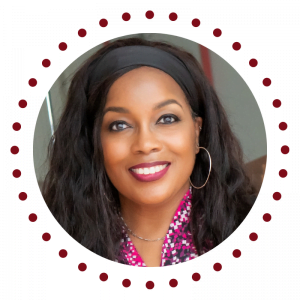
Want Karan to be Your Podcast Guest?
- Blended Workforces & the Gig Economy
- Critical Execution Tactics of High-performing Leaders
- Entrepreneurism & Leading Your Business

Want to be a Podcast Sponsor?
All sponsorships come with a featured spot on show notes pages.
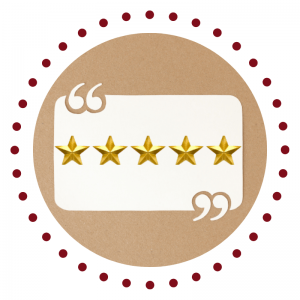
Like the Show? Please Leave a Review
If you like the show, it would mean the world to her if you left a quick review.
Your word is golden, so a HUGE thank you in advance!

#KeepInTouch
via our podcast alerts
Subscribe now to discover why thousands of monthly listeners who are passionate about doing their best work prioritize time each week to listen to the Blended Workforces @Work podcast.
#AboutSDL
#WhereToFindUs
MAILING
4480-H South Cobb Drive
PMB 219
Smyrna, GA 30080
PHYSICAL
2121 NewMarket Parkway
Ste. 108
Marietta, GA 30067
#ContactOptions
Customer Service Email:
service@shockinglydifferent.com
Call or Text:
770-384-1103
#Office Hours
MON-FRI
8:30 AM – 6:30 PM
Weekends By Appointment

